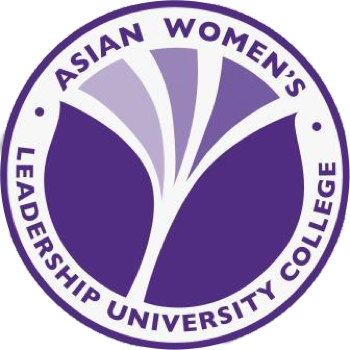
Postgraduate Studies
AWLUC’s Postgraduate Studies which are co-educational, include our signature Master of Arts in Leadership Development. Our programmes, offer a range of options to students seeking to advance their professional and academic careers.
Master of Arts in Leadership Development (MALD)
AWLUC’s Master of Arts in Leadership Development (MALD) programme is designed to nurture knowledgeable, competent, and ethical leaders to address current and future challenges. The programme imparts crucial skills for defining and encouraging leadership at all levels, supporting career progression from frontline to middle executive management in both the private sector and civil society spheres.
MALD Courses
The MALD programme comprises 42 credits across 10 courses:
-
This course introduces students to leadership theory and its various perspectives. It analyses the evolution of leadership theories, focusing on feminist, transactional, and transformational theories. Students also explore collaborative leadership, inclusive leadership, and introvert leadership. The course concludes with a "theory into practice" session, incorporating experiences and ideas from outstanding practitioners.
-
This course teaches students about cultural differences in work, focusing on effective communication and management across different cultures, crucial for successful leaders and managers in today's global economy.
-
This course explores conflict resolution theories, practices, and successful negotiation processes. It teaches students to differentiate between conflict resolution, dispute management and negotiation strategies, and to apply principles of negotiation to achieve win-win outcomes. Interactive sessions involve role-playing and conflict simulation.
-
This course covers research methods and design, focusing on philosophy of science, social science inquiry, and quantitative and qualitative methods. Students will analyse data and study gender, social change and leadership through focus group discussions, autoethnography and participatory methods.
-
This course explores transformational leadership theories, focusing on gender-inclusive principles. It covers topics such as leadership culture, techniques, styles, and ethics in various sectors, including public organisations, politics, the corporate world, social enterprises, and knowledge industries.
-
This course teaches students about social and cultural diversity, focusing on themes like gender, religion, and cultural identities. Through case studies, students explore their positions and learn how to navigate conversations to resolve differences, crises, and conflicts in personal and public life.
-
This course explores the history, contemporary applications, and future directions of Artificial Intelligence (Al), focusing on its transformative role in leadership, its impact on society, and its relationship with ethical and environmental, social and governance (ESG)-related issues.
-
This course focuses on creative problem-solving skills, providing a design thinking framework for business management, marketing, and design strategies. It explores global cases from government, healthcare, and education, highlighting its human-centred approach.
-
Introduces communication in purpose-driven organisations, in developing aptitude and capacity for personal leadership growth, students will learn techniques in listening, negotiating, public speaking and composing texts for building rapport and influencing audience. Practical exercises in developing verbal and written proficiencies will form one of the main contents of the course.
-
Independent study allows graduate students to explore leadership-related topics, contribute to research, and design or develop related projects. Students may develop an interest in a previous course(s), and conduct extended research, or propose solutions in areas like management, human resources, technology, entrepreneurship, healthcare, education and policy.
MALD Entry Requirements
To qualify for the MALD programme, applicants are required to fulfill the following:
A Bachelor's degree with a minimum CGPA of 2.50 out of 4.00, or its equivalent qualification as accepted by the AWLUC Senate.
Candidates with a CGPA below 2.50 out of 4.00, or its equivalent qualification, may be accepted subject to a minimum of 5 years of relevant working experience.
Recognition of Prior Experiential Learning (APEL) and English Language Proficiency:
Entry through the Accreditation of Prior Experiential Learning (APEL) is accepted as per the guidelines stipulated by MQA.
For international students, a minimum band of 6.0 in the IELTS or its equivalent is required. For local students, a pass in the Malaysian University English Test (MUET) is required.
Postgraduate Outcomes
Students in AWLUC postgraduate programmes will gain skills and knowledge that will enable them to further specialise in subfields such as:
Public administration and policy
Corporate management
Health and social services
Political and civil society organisations
Communications and media industry
Business and entrepreneurship
Creative and digital industries
Education and research
Technology and innovation management

